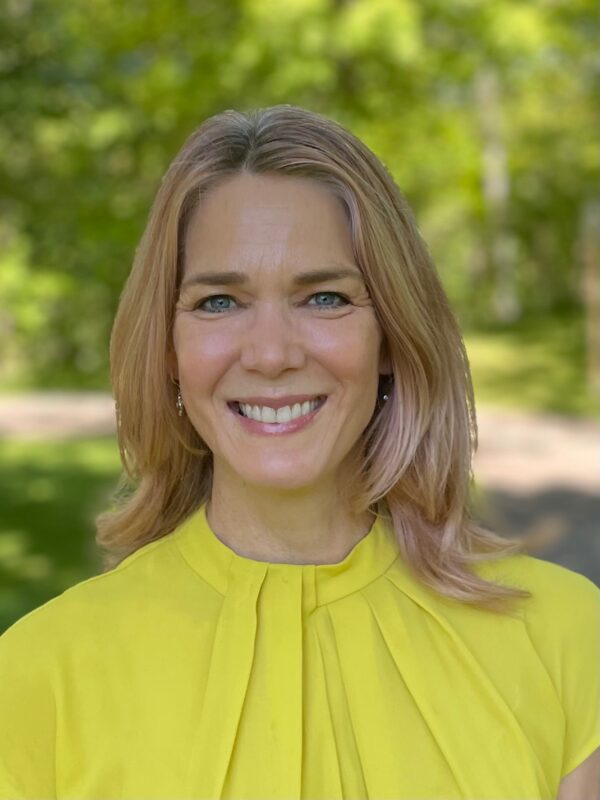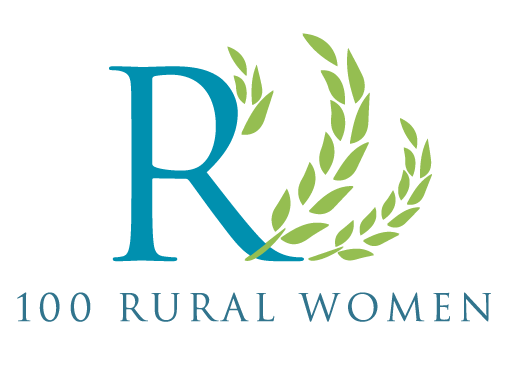“Know your worth.”
Alisa Benson is a member of the Orono City Council. She joined us in 2022 as the yoga instructor for 100 Rural Women’s virtual wellness offerings.
We are so fortunate to have Alisa in our community at 100 Rural Women and to have had the opportunity to speak with her for our Spotlight Profile Series
Tell us about you and how you got connected with 100 Rural Women
My name is Alisa Benson, and I am a newly elected member of the city council in the city of Orono, where I live. This is a really new adventure for me and I’m having just a great time with it. It builds upon some things I’ve done in the past, including my yoga practice, which is how I got involved with 100 Rural Women. Last year I was a yoga instructor working in the Twin Cities. I connected with your organization and began teaching Zoom online wellness courses as part of 100 Rural Women’s wellness offerings. It was just an incredible experience. The mission statement of empowering women really spoke to me and it’s interesting because through that process in working with Teresa and some of your other staff I, myself, felt more empowered to potentially try some new things. It’s just been a great process and a great evolution and I’m just so pleased to be able to be with you today to talk about it.
What is your connection to rural America?
I’ve thought a lot about this lately and the answer is: rural America is really in my genes. My grandparents on both sides came from rural America. My father’s parents grew up in a very small town in Oklahoma and moved West as part of the Great Depression to find work in a small town in Washington state. My mother and her parents grew up in small town of Waterville, Minnesota. I remember hearing stories from both of my folks about some of the unique aspects that are part of a rural life. The community, the financial aspects of living in a smaller town, and that connection to the land.
Although I didn’t grow up in a small town (I’m from San Diego, California) that history always resonated with me. As an adult I found myself being really drawn to working, in some cases, with folks who were living in smaller communities. I have a master’s degree in social work and as part of my work while living in Portland, Oregon, I would do home visits. I would be way out in rural areas hearing the stories of people who are living well outside the cities and how their lives really differed and how they could feel disconnected from life. That really struck me.
I also think rural America is beautiful. I love driving through it and it prompted me to move to the city of Orono. The city of Orono is known to have what they call a “rural character” or “rural aesthetic” because it has a lot of open space, mature trees, and lakes. In a lot of ways, people find this to be a comfortable place to live because of that connection to nature and open space. So, that was a long-winded way of saying I think that the connection there for me is historical.
A connection to rural America is also something that I think a lot about now in terms of ways to preserve and protect a connection to nature as well as an awareness that other people’s experiences may not mirror one’s own. Whether you’ve grown up in rural America or in a city, I think it’s really important to stay present and connected with individuals whose lives don’t always mirror yours. That’s just something I learned a lot about campaigning. We all have different stories and sometimes the assumptions that one community or another makes are not always true. So, it’s just good to be open.
How did you get involved with yoga?
Yoga is a big part of what informs my life and my work every day. I want to start by dispelling the myth that yoga is about wearing a certain outfit, looking a certain way, or knowing a certain pose. It is none of those things.
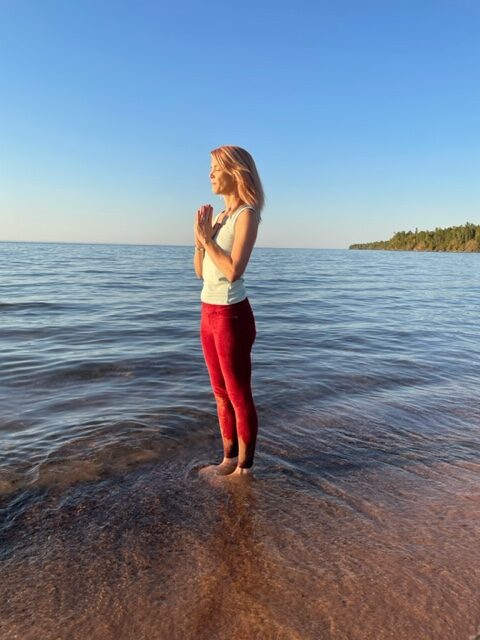
As a graduate student in St. Louis, Missouri I was stressed out. Imagine that! One night I saw an advertisement for a free yoga class, and I thought, why not? What do I have to lose?
It was a nice, short practice in the evening, and I fell asleep during Savasana, which is the final resting pose. I realized: A) I’m sleep-deprived and B) whatever happened during that hour was magical. I’d never experienced that before. I’d never felt accepted like that. Come as you are. Do what you need. Fall asleep. Maybe even snore. These things are okay. And I think for me being a graduate student at the time, I felt there was a lot of being judged, measured, compared, and needing to meet expectations. This practice allowed me to understand that there are places in life where we don’t need to do those things. We can shed those things. Sort of a light switch went on in my head and I realized there’s a different way.
So, many years later I was dabbling with different types of practices while I was working in Oregon. I was finding lots of different ways to practice and people to practice with. The upshot was, I realized that I was practicing from the “neck-up.” For me, it was a place that I lived in my head. The body would follow. It was about coming and being present. There was also the idea of when things get difficult in a practice, as they do in life, how am I handling that? Am I becoming discouraged or frustrated? Am I being kind to myself in the moment? Or am I judging myself? and those sorts of questions were ongoing with me. And it was also one of the things that gave me strength off the mat.
It can be scary at first because we’re used to flying around doing lots of different things at once and the practice of yoga is really about tuning into your true self and being able to sit sometimes in the discomfort of what you’re doing. Knowing that it’s okay. Knowing that you’re in a safe place.
I took this practice forward and many years later I decided finally to jump in and become certified. That said, I signed up for a program to get certified and then the pandemic hit so my class here in Minneapolis was the first ever to become certified over Zoom. I took an entire nine-month course of yoga certification through this virtual means. It was incredibly challenging and rewarding.
How does this inform where you are now?
The practice of yoga is shedding what we don’t need; letting go of things that no longer serve us. For me, some of that was those thoughts of judgment. In running for office, I would think, what if I lose the election? What if I don’t have an answer to a constituent’s question? What if, what if, what if…
I really allowed myself permission to be human through that process. I gave myself permission to not always have the answers. I challenged that judgment voice and said “Hey, you know what, I’m doing my best. I’m here with good intentions. My intention is to serve and to listen and that’s enough. Right there.”
Yoga is about being vulnerable and that’s a tough place to live in when you’re on a campaign. Vulnerability is tough for all of us. It’s especially tough when you’re being potentially criticized or challenged. So, I really found myself in that process of running for council and kind of walking a tightrope in terms of being open. Being open to people I met and people I was working with, but also having a sense of when I needed to protect myself. And it’s just a balance. Yoga is about balance. Life, ideally, is about striking a balance in what we do.
What prompted you to run for city council?
I met Teresa Kittridge (who is wonderful) and she has a long history in service in many different ways. Last year I was serving as a Park Commissioner or an Alternate to the Park Commissioner in Orono. Through that process, I saw how the government worked. In seeing that advisory role that I was in and talking to Teresa, I really thought to myself, you know this is something that interests me. I’m interested in having less of an advisory role and really having more of a vote. I want to be one to lead.
Over last summer I was talking to residents I realized there was enough going on in my community that I have an opinion about and feel like I can improve. So that really prompted me to run.
The challenge for me is that I’m not somebody who’s ever wanted to be the focus. I didn’t want the attention and the scrutiny. But I reframed it in my mind, and I thought, this is not about Alisa. This is about community. This is not about me being somebody who has power or control, it’s really about me being a vessel of service in my community, connecting people, listening well, and taking our community’s thoughts forward to the city council.
That’s when I, as a professional advocate for many years, felt a lot more comfortable with that role. And the short story is that it worked out well. I got the highest vote count in our city, and I was really pleased. I was the only woman running…that was another factor.
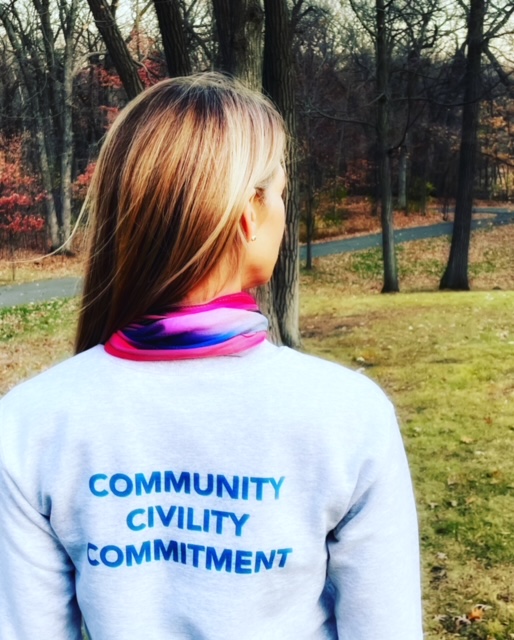
Tell us about your experience running for council!
In the city of Orono, we have a council of five. When I was running, it was four gentlemen and one woman. There were two seats available, three of us running, two men and myself. I talked a lot in my campaign about the fact that for a city of 8,400 people or so to have one council person who’s a woman when we have about 48% women in our city is not reflective of our populace. I was the only woman running so it’s not like there was a lot of choice, but I’ll tell you I met a lot of voters who said “You know, I think it’s important. I have daughters.” Our high school and public school are right across the street from City Hall, and I talked a lot about that. What are our young women seeing in terms of leadership roles in the city of Orono when they look across the street at our city council?
So, I’m really pleased and proud to have been elected and to have the faith of our constituents put in me. I had never run for office before. Oftentimes while door knocking people would open the door and immediately think that I was there to tell them something about me to speak on my platform and they were typically surprised that I told them I was there to listen. I asked them to tell me about themselves, what’s important to them, and what issues they’re interested in. Then I could help provide information on those things.
I found that the comfort for me was in the sense that it was a partnership. It was a dialogue and more for providing information and resources. With my background as a social worker, it was quite comfortable for me. Advocacy has always been important to me throughout my life and reframing things in those terms as an educator, as an advocate, and as a resource, made that much more comfortable.
And again, the yoga background of practicing vulnerability. Yes, there are limits but that vulnerability is what the public wants to see. It doesn’t go over well when you have candidates running who presume to always know best, have the answers, and are unable to show their humanity and be comfortable connecting on that level with residents. So being genuine, which is all I’ve ever known how to be, really– and again with social work you need to have rapport. You need to be able to build rapport to show people that you’re listening and what they care about matters. You need to meet them halfway. So, those were all things that went into it.
Here’s the funny part. I never would have guessed how well my skill set and interests matched with the process of campaigning and door-knocking. I just had the best connections, the best conversations, and that’s when I thought, I feel really good about this.
I was the newcomer. I did not have the support of the administration here or the mayor of our city who was very vocally supporting the other two candidates. What I had is a 15-year history of living and serving the community. But also, that sense of caring deeply about the people who live and work here and in the communities around our city. And that, I believe, came across and the voters put their faith in me and elected me to office.
I can tell you with assurance that the voters are not interested in hearing negativity or “he said, she said” They’re interested in you helping them understand the issues, bring forward their concerns, and solve problems. So even though it was uncomfortable, even though it was a new thing for me, I created a Facebook, Instagram, and YouTube videos. My approach was to reach people and reduce barriers to information. I thought just some short YouTube videos introducing who I am, what the issues are, and what was going on would be a nice way to simply connect. It turned out to be a great avenue for meeting people where they were and discussing the issues.
As a council member, I’m 20% of the decision-making body for our community. It’s a big responsibility and one that I absolutely don’t take lightly. I take a lot of pride and have a great deal of respect for the office.
Well thank you for talking about bringing humanity back to election…people that have always been represented don’t think about the importance of representation. And so going door-to-door and talking about these things openly can open people’s eyes to how they vote in the future as well. And that’s an impact that will last beyond just this past election term.
Community engagement is something I want to continue. I’m thinking of a couple different situations with residents. One gentleman, a long-time resident, said he’d felt fairly invisible/ forgotten. He said to me, “I’m going to vote for you and please if you get elected, don’t forget about me.” I think about him nearly every day. Those are the sorts of interactions that really bring it home to me that we have not only an opportunity but a responsibility as elected officials to reach out proactively to our community.

That is why this community engagement piece to me is so critical. I recognize that I am a representative for our city now and that informs my decisions. I want to go to community events, be a visible presence, and be somebody who actively seeks out residents as opposed to saying, “Well if you have an issue, call me.” That’s not the same messaging. I don’t need anyone to twist my arm to go meet the public. It’s that social worker yoga teacher in me that says… where do I show up?!
Who or what has been your biggest inspiration?
I’m going to go back to family. That’s where a lot of my inspiration comes from. I want to talk about both my parents. My dad is still alive, but my mom passed away in 2012 at age 73.
When you’re a young person growing up with a mom or a dad or extended family, you don’t always understand what’s happening when it is. Then after the fact, when you encounter hardships in life or you have people questioning your worth, those are the times that you realize what you’ve been given. You think back to the lessons, the lectures, the fun times, and the hard times. In my case, what I was given by my parents and my mother was that sense of self-worth. She was a very strong woman. She was a teacher. She was a child advocate. She got an advanced degree while having three young daughters at home and being a full-time parent. Not easy to do. At the time I thought, well she’s typing on her typewriter late at night, but what is she doing? Why is she always writing things or talking on the phone to people?
I didn’t have a sense until years later of the incredible work that she was doing to help her community and in particular, help women. She worked with and supported young moms and teenagers who were pregnant, schoolchildren, and people who were in really difficult positions of need. She always had that sense of giving back and not questioning the need, simply doing.
When I spoke at her funeral I talked about the “sense” that she gave me. It’s what I would refer to as a “moral compass in life.” It’s times like now when I can be in a council meeting or wherever I am and start to feel this sense of wow, this issue is complex, it’s heated, I’m hearing from over here and over there and I sit with these issues and I think to myself, you know what, I have a sense in me of right and wrong. I have a strong sense of ethics and I have a moral compass that in many ways my mother and my father helped instill in me.
And a sense of not questioning myself and my motivations, but just recognizing that many of the things that I come up against in life were given to me in bits and pieces, year after year, all along by my mom.
So, I will say that she’s really an inspiration to me. Every day. I talk about her often and even made a video about her when I was campaigning. I felt inspired by her as a leader and as a woman and I wanted to recognize that.
On a different note, I saw an incredible documentary last year called “The Seeds of Vandana Shiva.” Vandana Shiva is an Indian woman who’s a physicist and an activist. She formed an organization in India to support rural communities and farmers to be able to have control over their seed production and really fought hard against the corporatization of seed production with companies in America and beyond. It was an incredible documentary and learning about individuals like Vandana Shiva who are fighting every day to give voice to communities that are disempowered was incredibly inspiring to me. Her inspiring leadership and fearlessness in facing obstacles have really had an impact on me.
What advice would you give to your former self?
If I could distill it down, it would be: know your worth. Know your worth. I can tell you that as a younger person, whether it was in positions of employment, past relationships, or friendships, there were times when I would question myself. I contemplated whether or not I was doing the right thing based on the response of an employer, partner, friend, etc. In those moments I think I looked away from or ignored that sense of me that thought, why is this so hard? Why do I feel like I’m hitting a brick wall? Why do I feel like despite my best efforts with this individual, they are telling me I’m not enough or need to be more like this or that.
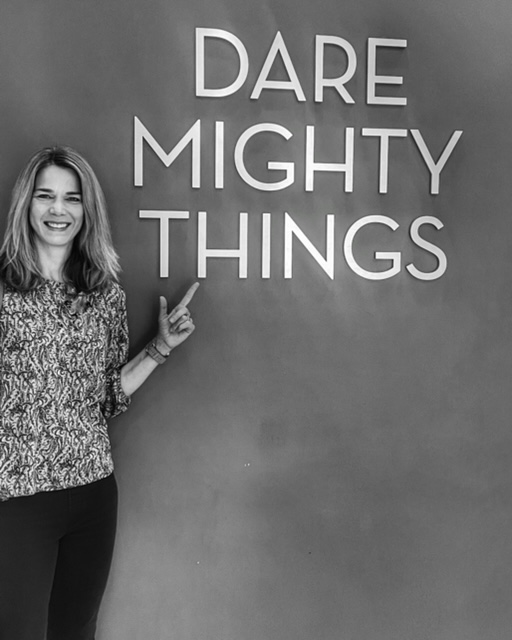
It was like a light switch went on my head and I thought to myself, I deserve to be happy. Period. That doesn’t mean rich. That doesn’t mean that things always come easily. That doesn’t mean I get everything I want in life. It simply means that I deserve to be happy.
So, at that moment with that individual, I thought, that’s okay. It’s okay that you have your perspective or that I’m not this enough or that enough for you. But I deserve to be happy. Once that switch went on it, never went off. I measure my decisions in my life now based on that sense of knowing what I’m worth.
That’s when I must reevaluate those positions and relationships. So, for me, if I could give advice to my younger self or to any younger person it would be know your worth and you define your worth. Nobody else does. Don’t look to others to tell you what you’re worth, that needs to come from inside.
